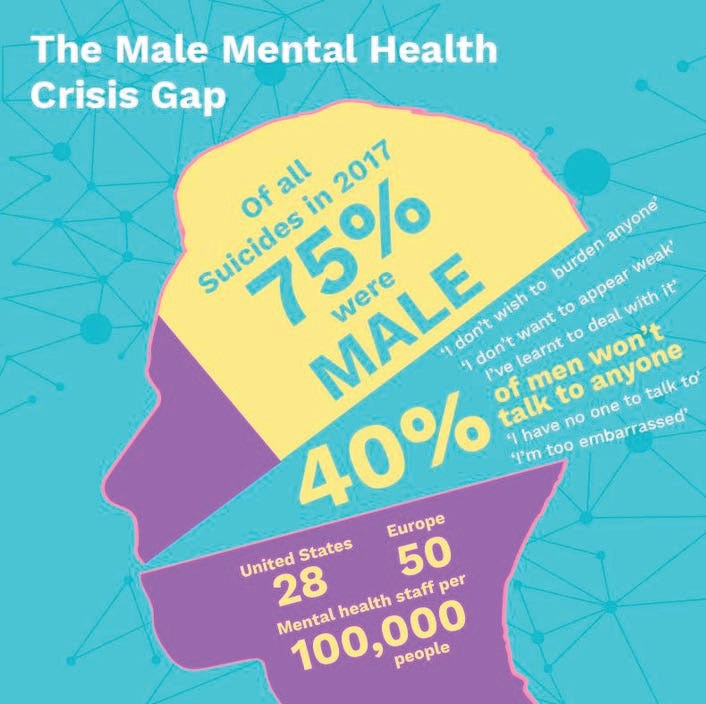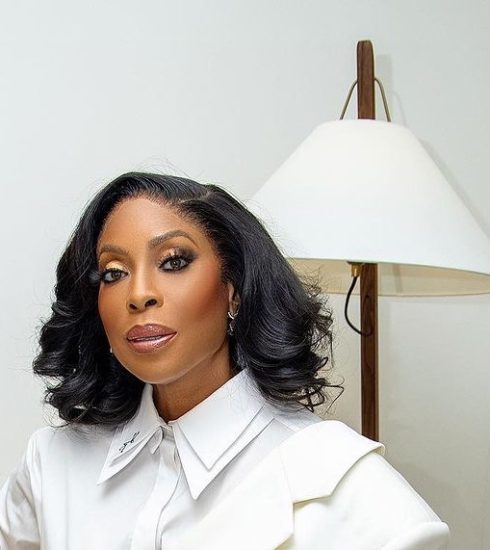“Be A Man!” An Effeminate Manifesto
There are two genders. Wait a minute, there are 72 genders. Our fixation on gender identity and sexual orientation have been hot topics both online and offline for years. A middle ground doesn’t seem to exist in this particular subject matter. Regardless of what you think of gender identity and its expression, there are two constants on the ends of the spectrum: the traditional man and woman.
You are aware of the subtle messages that creep into our human interactions. The quiet “Aren’t you supposed to be a man?” we often mutter. The murmurs of “Why are you acting like a woman?” we even sometimes yell in a bid to stress the perceived dominance and sheer physical and mental strength that is expected of a man. These gave birth to the ideologies of toxic masculinity. What makes a man so different from a woman?
In 1992, American author and relationship counsellor John Gray wrote a book titled Men Are from Mars, Women Are from Venus, which states that the most common relationship problems between men and women are a result of fundamental psychological differences between the sexes.
Gray states when male tolerance to stressful situations is exceeded, they withdraw temporarily, “retreating into their cave”, so to speak. Often, they retreat: for example, to the garage, or to go spend time with friends. In their “caves”, men (writes Gray) are not necessarily focused on the problem at hand.
Gray holds that male retreat into the cave has historically been hard for women to understand. When women become unduly stressed, their natural reaction is to talk with someone close about it (even if talking doesn’t provide a solution to the problem at hand). This sets up a natural dynamic where the man retreats as the woman tries to get closer, which becomes a major source of conflict between them.
Despite its popularity, the book has been criticised for placing human psychology in stereotypes. British clinical psychologist Simon Baron-Cohen compares Gray’s bestseller and states: “the view that men are from Mars and women Venus paints the differences between the two sexes as too extreme. The two sexes are different, but are not so different that we cannot understand each other.”
In 2005, Janet Shibley Hyde from the University of Wisconsin-Madison introduced the gender similarities hypothesis, which suggests that males and females are similar on most, but not all, psychological variables. The research focused on cognitive variables (for example, reading comprehension, mathematics), communication (for example, talkativeness, facial expressions), social and personality (for example, aggression, sexuality), psychological well-being, and motor behaviours. A few exceptions were some motor behaviours (such as throwing distance) and some aspects of sexuality (such as attitudes about casual sex), which show the largest gender differences. She concludes her article by stating: “It is time to consider the costs of overinflated claims of gender differences. Arguably, they cause harm in numerous realms, including women’s opportunities in the workplace, couple conflict and communication, and analyses of selfesteem problems among adolescents.” Hyde also stated elsewhere that “variations within genders are greater than variations between genders.”
Standards of manliness vary across different cultures and historical periods. Traits traditionally viewed as masculine in society include strength, courage, independence, leadership, and assertiveness. As expected, these are sharp contrasts from the stereotypical feminine traits such as nurturance, sensitivity, sweetness, supportiveness, gentleness, warmth, passivity, cooperativeness, expressiveness, modesty, humility, empathy, affection, tenderness, and being emotional, kind, helpful, devoted, and understanding.
For so long men have been expected to have a rough exterior. In most cultures, men who display qualities considered feminine are often stigmatized and labelled as weak. Effeminate men are often associated with homosexuality, although femininity is not necessarily related to a man’s sexuality.
Because men are pressured to be masculine and heterosexual, feminine men are assumed to be gay or queer because of how they perform their gender. This assumption limits the way one is allowed to express one’s gender and sexuality.

When we have gender conversations, it often ultimately gets the resolution that men are logical and women emotional. This ideology is harmful because then we are narrowing down the human experience to a black or white verdict.
It is possible to exhibit both masculine traits of stoic logic and feminine traits of empathy and compassion. The realisation that other people are trying to better their own living experience and it doesn’t threaten ours.
The ‘elephant’ expectations society has placed on the shoulders of a man is the price we pay for the power we have been accorded. As a man, we are expected to be leaders and to have everything in order. The entitlement of several men to demand honour and respect they have done absolutely nothing to earn.
As a man, the vulnerability that leads to talking about our feelings and sharing our problems with loved ones is frowned upon. The audacity to dare to be anything other than stone-cold, which in turn forces several men to fake an exterior that is hard, hence defensive. This is a core reason for most men’s mental health struggles.
How to think or act as a man has become so commonplace in our subconscious. We don’t think about it a lot, yet we have ascribed its meaning and held on to it as our truth. What does it mean to be a man? In between all of the scientific research and what the religious holy books say, I sincerely have no clue. But I know what it means to be human and I try to be the best version of that with each day that passes.
Self-identifies as a middle child between millennials and the gen Z, began writing as a 14 year-old. Born and raised in Lagos where he would go on to obtain a degree in the University of Lagos, he mainly draws inspiration from societal issues and the ills within. His "live and let live" mantra shapes his thought process as he writes about lifestyle from a place of empathy and emotional intelligence. When he is not writing, he is very invested in football and sociopolitical commentary on social media.






